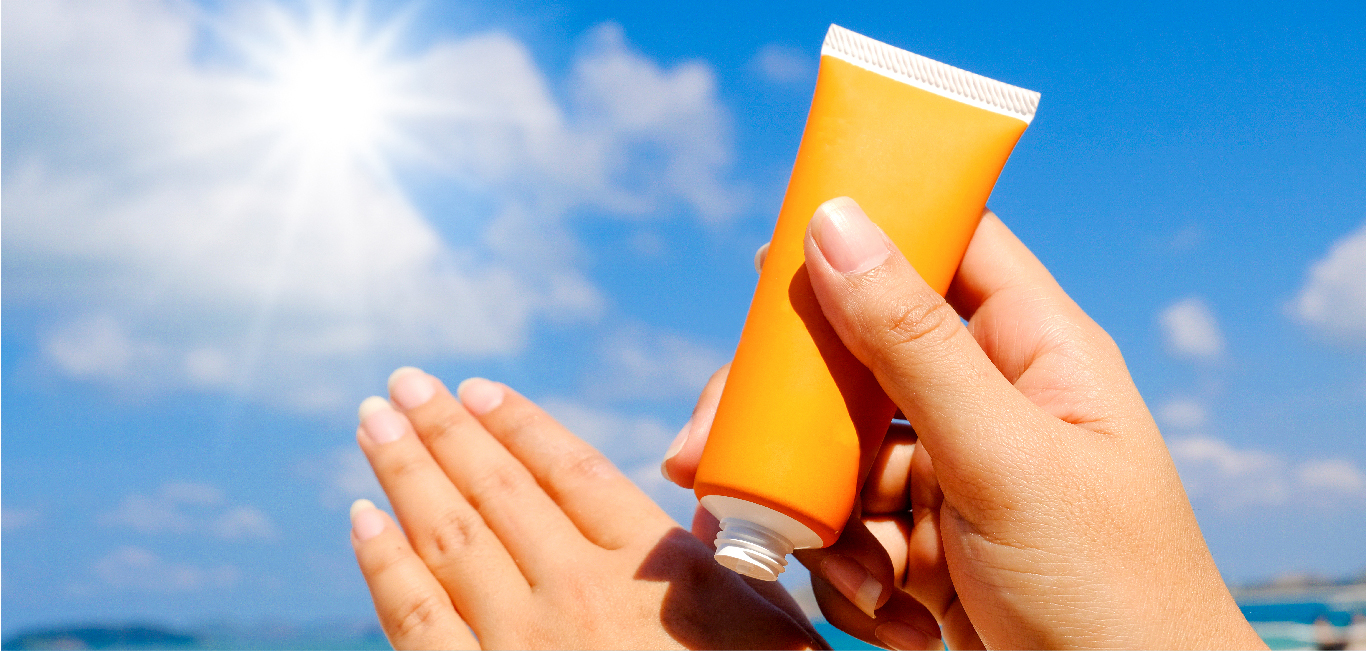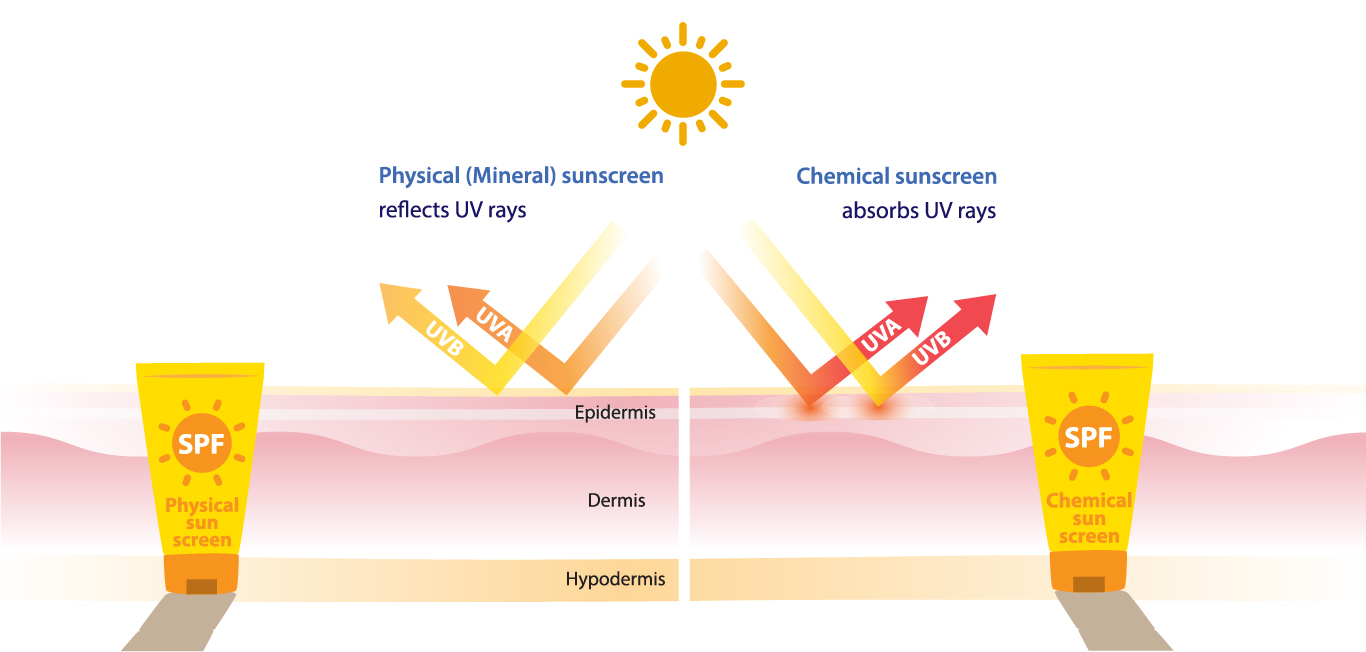
Applying sunscreen is an essential component in one’s skincare routine. The World Health Organisation (WHO) recommends that people apply broad-spectrum sunscreen, which is SPF 15+ liberally. It should be reapplied every two hours if there is continuous sun exposure.
Dr Jude Dileep, consultant dermatologist at Dr Jude’s Hair Transplant and Skin Clinic, Puducherry says, “It (sunscreen) prevents tanning, photo ageing (skin laxity, wrinkles), dull complexion, uneven skin tone and skin cancers (more relevant in Caucasian skin types). It also forms an important part of treatment regimens for people with photosensitive skin conditions like acne (pimples), rosacea and photoallergies.”
However, with different types of sunscreens available in the market and loads of information on the internet, the question arises: which should one choose?
Experts share their advice about the different types of sunscreens with Happiest Health…
Physical sunscreen
Physical sunscreen, also known as mineral/ inorganic sunscreen, acts as a shield between the skin and harmful UV rays and physically blocks the rays from damaging the skin, says Dr Shoba Sudeep, consultant dermatologist and cosmetologist, Bengaluru.
The main and common ingredients of physical sunscreens are
- Zinc oxide
- Titanium dioxide
These ingredients are naturally occurring, and so considered to be safer than chemical ingredients.
Sudeep shares a few advantages
- Zinc oxide offers anti-inflammatory benefits, so it is much safer to use on sensitive acne-prone skin
- They suit all skin types and is preferably recommended for children, pregnant women, and people with rosacea and melasma
- They reflect and scatter harmful rays. Moreover, they work right away and is ideal if someone needs quick sun protection. They are also photo stable
Both Dileep and Sudeep share a few disadvantages
- They have thick granular consistency, are not easily spreadable, and are difficult to apply. They also leave a white cast, which is cosmetically unappealing. They often feel heavier on the skin compared to chemical sunscreens
- Physical sunscreens are not water resistant so they provide less protection when in water
“Newer physical sunscreens have nanoparticles which do not leave a white cast and are cosmetically acceptable,” says Dileep. However, there are concerns regarding the penetration of nanoparticles in the skin and systemic absorption. As such, nanoparticle physical sunscreens are not recommended to pregnant and breast-feeding mothers by some dermatologists.

Chemical sunscreen
A chemical or organic sunscreen contains molecules called filters that absorb and neutralise ultraviolet (UV) radiation. As such, these sunscreens have filters for UVA and UVB and some filters neutralise both these wavelengths, says Dileep. “Also, an SPF of more than 30 is recommended.”
The main and common ingredients of physical sunscreens are
- Oxybenzone (UVA filter)
- Avobenzone (UVA filter)
- Octisalate (UVB filter)
- Octocrylene (UVB filter)
- Homosalate (UVB filter)
- Octinoxate (UVB filter)
“Most commonly available sunscreens in the market have one or more chemical/ organic components,” says Dileep.
Sudeep shares a few advantages
Chemical sunscreens are more easily applied, are water resistant, and provide protection for a much longer time than physical sunscreens. They are easily spreadable, cosmetically more appealing and do not leave an unpleasant white cast.
Both Dileep and Sudeep share a few disadvantages
- Chemical sunscreens are generally not recommended for those who have sensitive skin and are prone to allergies, as sunscreen allergy is more common in them. They are not recommended for children as well
- They can cause a skin reaction in people with sensitive skin and also worsen melasma and rosacea.
According to Dileep, chemical sunscreens are often not recommended during pregnancy and breastfeeding by many dermatologists, but there are no clear-cut guidelines regarding this.
“Chemical sunscreens can cause photoallergy, which can manifest as itching, burning, redness or rashes after a person applies sunscreen and goes out in the sun, but it is not very common (<1% of those who use develop allergy),” Dileep adds.
The bottom line
The key difference, according to Dileep, is how they react to UV light. Chemical filters absorb and neutralise UV light while physical sunscreens reflect them.
According to Sudeep, both physical and chemical sunscreens have their own advantages and disadvantages. However, by and large a physical sunscreen is preferred as it suits all skin types, provides good protection and does not get absorbed into the bloodstream.
Cosmetically, chemical sunscreens are better because they are easy to apply and provide a longer period of protection from the sun.
However, preference varies from person to person, and it is recommended that if a person has any underlying condition, it is best to refer to a dermatologist before choosing any sunscreen.

















